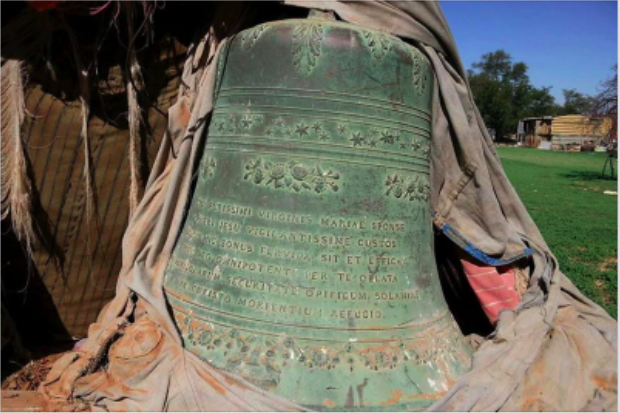Law & Politics
Facebook, a Longtime Hub for the Illicit Antiquities Trade, Bans the Sale of Historic Artifacts on the Platform
Ancient coins, manuscripts, mosaics, scrolls, and tombstones are all included in the ban.

Ancient coins, manuscripts, mosaics, scrolls, and tombstones are all included in the ban.

Facebook has banned the sale of historical relics on its site.
The company announced its new policy yesterday, following recent, highly publicized reports that showed the social media platform had become a major destination for black market trading.
“Historical artefacts hold significant personal and cultural value for communities across the globe, but their sale often results in harmful behaviour. That’s why we’ve long had rules preventing the sale of stolen artefacts,” explained Facebook public policy manager Greg Mandel in a statement.
“To keep these artefacts and our users safe,” Mandel continued, “we’ve been working to expand our rules, and starting today we now prohibit the exchange, sale or purchase of all historical artefacts on Facebook and Instagram.”
According to the company’s newly expanded rules, historical artifacts are defined as “rare items of significant historical, cultural, or scientific value,” including ancient coins, manuscripts, mosaics, scrolls, and tombstones.
For the first time, Facebook's Community Standards now officially list a policy on cultural property under 'Regulated Goods'
This is a big first step to stop the trafficking of illicit antiquities on Facebook, but there's still much more to be done https://t.co/oQOXpXbX4s pic.twitter.com/aegJOKfFEl
— ATHAR Project (@ATHARProject) June 23, 2020
Last year, the Antiquities Trafficking & Heritage Anthropology Research (ATHAR) project, an independent initiative tasked with investigating the illegal sale of artifacts in the digital underworld, published a report on the use of “Facebook’s Black Market in Antiquities.”
The group uncovered 95 groups on the site dedicated to these sales, with over 1.9 million members combined. The vast majority were based in the Middle East and North Africa, with over one-third of those offering artifacts hailing from conflict zones. Buyers and sellers would communicate in coded language and would move to an encrypted app before making a transaction.
“They literally will post pictures from auction catalogs and say, ‘See, this is how much this stuff can sell for, so go for it guys,’” Katie Paul, the project’s co-director, told the New York Times.
Amr al-Azm, Paul’s co-director at ATHAR, told the BBC that his organization has witnessed a recent uptick in activity on the monitored Facebook groups—possible taking advantage of the economic crisis brought on by the current pandemic.

User in Cairo advertising his services for scuba-diving to loot in a tomb that is filled with groundwater on February 21. Screenshot courtesy of the ATHAR Project.
“The largest group we identified had roughly 150,000 members this time last year—now it has more than 437,000,” he says.
Facebook has removed dozens of groups from its site and is in the process of developing algorithmic systems that will identify black market content through images and key words. But al-Azm wants more from the platform.
“Relying on user reports and Artificial Intelligence is simply not enough,” the co-director argues. “This is also a black market that funds criminal organisations, warlords, and radical extremists, and it’s happening on the same site in the same digital space that you welcome into your home and [use to] share photos of your children.”